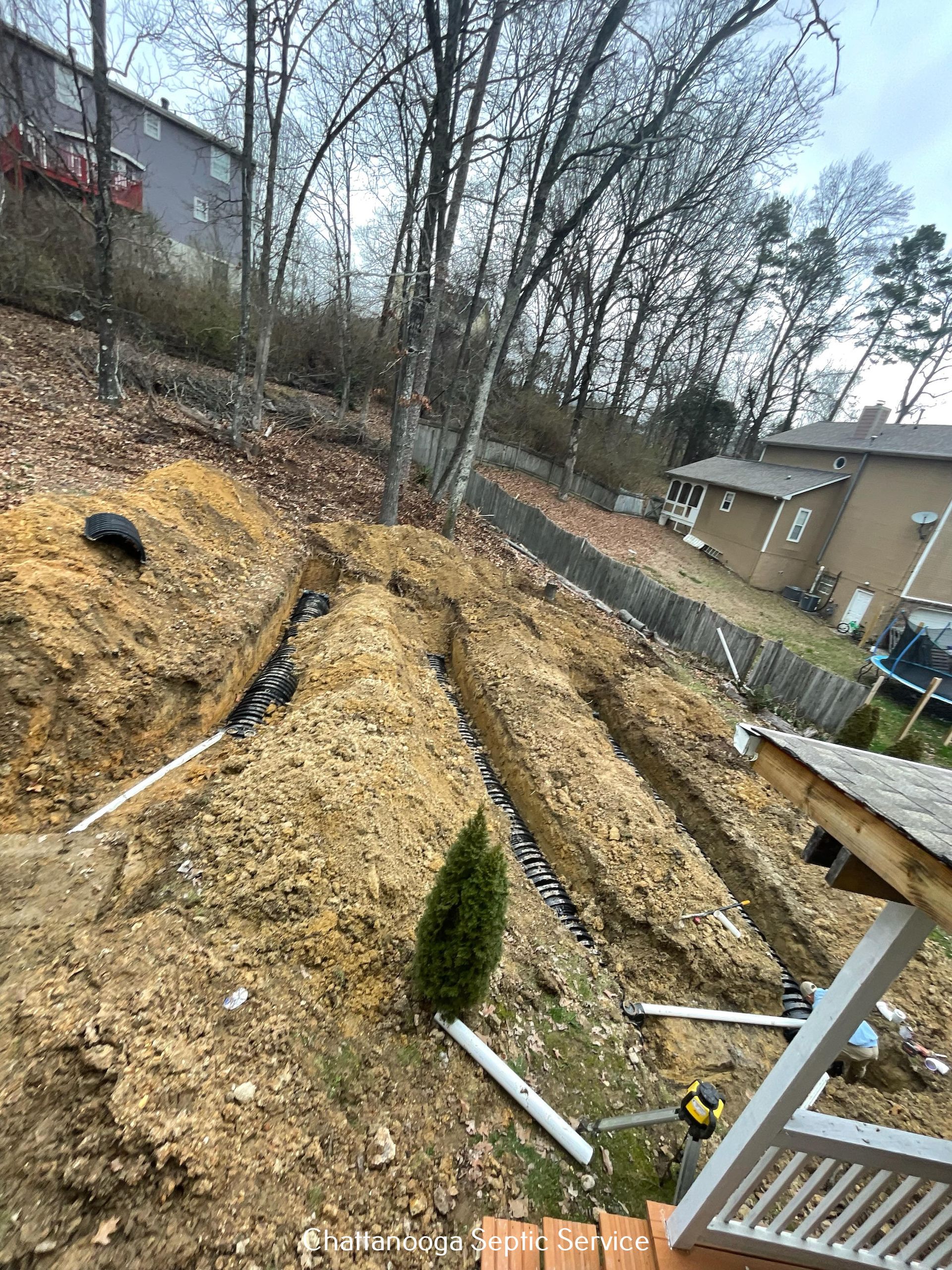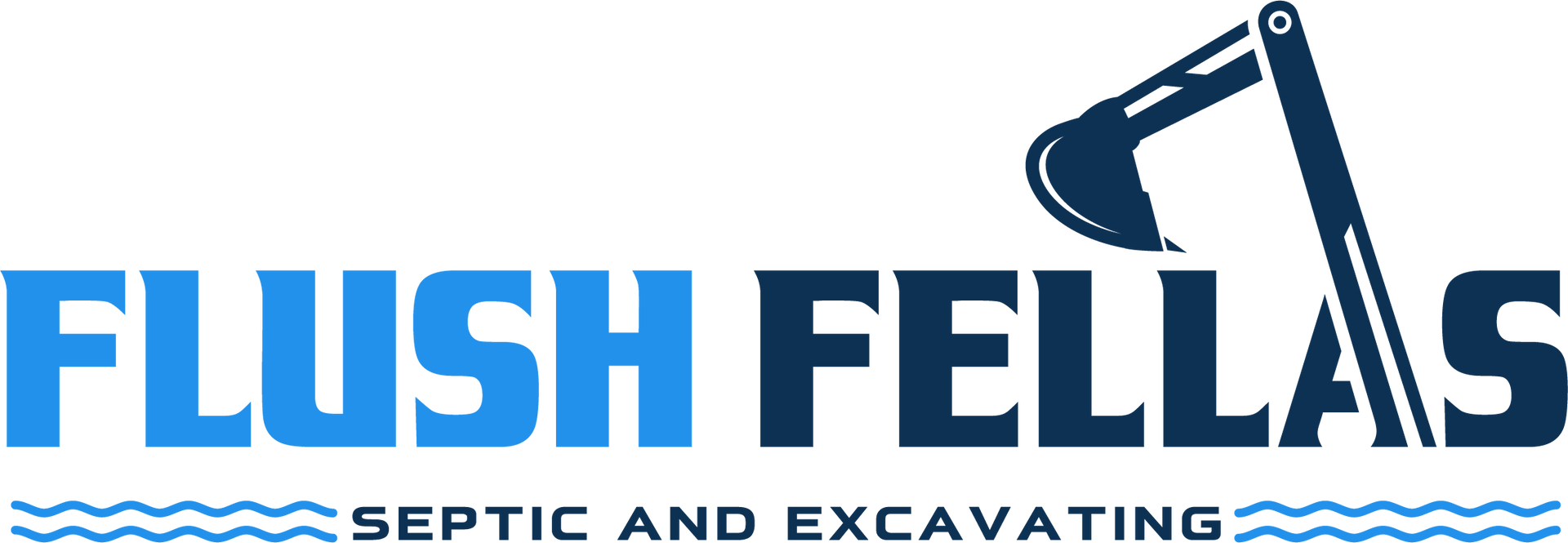If you live in a home with a septic tank system, you understand how critical it is to keep everything in functioning order. A blocked septic tank can cause foul odors, delayed draining, and even expensive repairs. In this complete guide, we'll go over everything you need to know about septic tank maintenance, from the causes of a clogged septic line to preventing clogged lines. So, let's get started and discover how to keep your septic tank clear and running smoothly.
Causes of Clogging in a Septic Tank
Harsh Cleaning Chemicals
Cleaning your home is critical to keeping a healthy and enjoyable living environment. On the other hand, harsh cleaning chemicals can cause septic tank obstructions. These chemicals can potentially kill the bacteria that break down waste in the tank, resulting in a buildup of solid material. Furthermore, they can corrode the septic tank, producing structural damage that might lead to obstructions.
Grease, Fats, And Oils
Pouring fats, oils, and grease in your drains can cause major difficulties for your septic tank. As these materials cool, they harden and adhere to the tank's sides and the pipelines flowing to and from it. This accumulation can restrict the flow through the system over time, eventually resulting in a clog. When this happens, sewage can back up into your house or yard, posing a serious health risk.
During heavy rains, fats, oils, and grease can also enhance the risk of sewage spills.
Materials That Are Not Degradable
One of the most serious issues with a septic tank is the accumulation of non-biodegradable materials. Plastic wrappers, cigarette butts, and paper towels are examples of non-biodegradable materials. When these objects are disposed of in a septic tank, they do not degrade and eventually clog the pipes that run from the tank. For this reason, the septic tank will not function properly and will necessitate costly repairs.
Other causes of clogged drains include:
- Excess water
- Tree roots
- Garbage disposals
- Improper maintenance
- Leach field problems
- Flooding
- Insufficient water entering the tank

How to Prevent Septic Tank Line Clogs
Inspect your System Frequently
If your system consists of a septic tank and drainfield, sometimes known as a gravity system, you must inspect it at least once every three years. All other types of systems must be evaluated at least once a year. Your local health agency's inspection requirements may be more strict. You can pay a septic specialist to perform the inspection, or you can do it yourself if your local health agency allows it.
Septic tanks are settling chambers that allow particles and scum to separate from wastewater so that clear liquid can filter into the drainfield safely. It is critical to prevent particulates, known as sludge, from accumulating near the system's outflow baffles. If this occurs, sediments may clog the drainfield or clog the line to the drainfield. During this process, check for any leaks.
The best time to check for leaks in the septic tank is when it is being pumped, so if your technician doesn't already include a leak inspection in their process, ask if they would be able to perform this task while they are pumping the tank. At this point, it's also a good idea to inspect the baffles to make sure that they are not missing, broken, or deteriorated. (1)
Pump Your System
When necessary, conduct a septic tank pumping Chattanooga. Don't wait until you have a problem to address it. For the average household, septic tank pumping Chattanooga usually happens every three to five years. However, regular Chattanooga septic tank pumping will help you avoid costly failures like a clogged drainfield or sewage backing up into your home.
Garbage disposal increases the amount of sediments that enter the septic tank, necessitating more frequent septic tank pumping Chattanooga, TN. The frequency with which you must pump your septic depends on the following factors:
- Size of the family. Generally, the more people in the house, the more frequently you should pump.
- The total amount of wastewater produced. If you pour a lot of water down the drain, you'll have to pump more frequently.
- The amount of solids in wastewater. Garbage disposal, food waste, and RV and boat waste put into your system will quickly fill the tank with solids.
- Size of the septic tank. The larger the tank, the greater its capacity to hold sediments and water, allowing more time between pumping.
The best way to keep the
cost to pumping septic tank in Chattanooga, TN to a minimum is to hire qualified
septic tank pumping companies in Chattanooga area. These companies will utilize their skills and cutting-edge technology to complete the pumping quickly and efficiently.
Properly Dispose of Wastes
Toilet paper disintegrates significantly faster than other types of paper. Some paper towel brands are so strong that they resemble fabric. They take a long time to disintegrate, and the paper piles up until a blockage forms. If you flush paper towels regularly, your sewage drain is more likely to clog, especially if there are roots in the line that can trap the paper.
Additionally, paper that enters the septic tank but does not decompose will gather on the tank's bottom. This accumulation forces you to empty the tank faster than if you disposed of facial tissues, wet wipes, and paper towels in the trash rather than the toilet.
Use Water Properly
The average indoor water consumption in a normal single-family home might be as high as 70 gallons per person per day. A single leaking toilet can waste over 200 gallons of water every day. The water that a family sends down its pipes eventually ends up in its septic system. The less water that enters the septic system, the more water a home conserves.
Efficient water use improves septic system operation and lowers the danger of failure. To save water, do the following:
- Buy water-saving devices such as faucet aerators and high-efficiency toilets, showerheads, dishwashers, and washing machines.
- Fix dripping faucets and plumbing fixtures. Every day, a leaking toilet can waste hundreds of gallons of water.
- Shower for a shorter period.
- Bathe in a half-filled tub.
For more information on Flush Fellas Septic & Excavating and our services, feel free to reach us via phone today: (423) 498-9839.

About the author
Charles Chandler
Charles Chandler is the founder of Flush Fellas, a septic and excavating company based in Chattanooga, TN. With a passion for providing top-notch services to his clients, Charles has established himself as a prominent figure in the industry. He has extensive knowledge of septic systems, excavation, and drainage solutions, which he uses to offer customized services that meet the specific needs of his clients. Charles is committed to providing exceptional customer service and building long-term relationships with his clients. He is dedicated to staying up-to-date with the latest industry trends and innovations to ensure that Flush Fellas continues to offer the best services possible.


